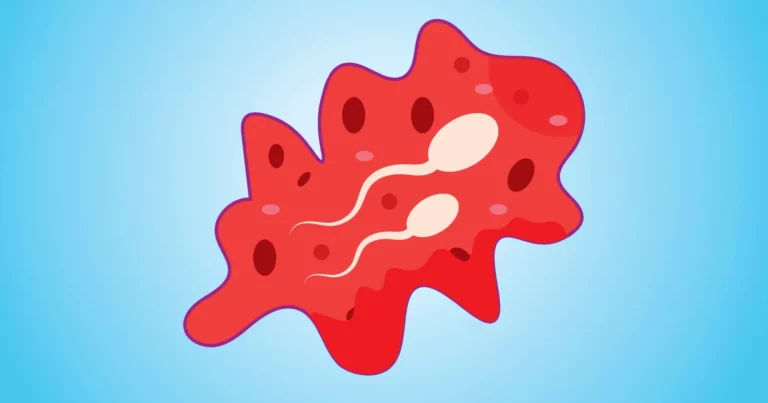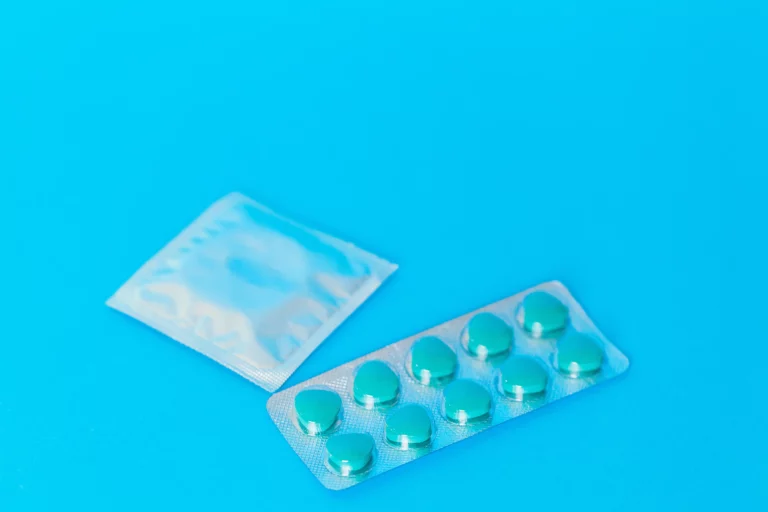Welcome to the wonderful, wild world of testosterone – the hormone that makes men, well, men. If you’ve ever wondered what fuels your drive, your ambition, your very “macho-ness,” then you’re in the right place. We’re about to dive into the fascinating story of this powerful hormone, its high-tide signs, its potential pitfalls, and its amazing advantages. Prepare yourself for an illuminating journey.
The Testosterone Tale
The Macho Hormone Decoded
Testosterone, often referred to as the “male hormone” is primarily produced in the testes and is responsible for a multitude of roles, from kick-starting puberty to maintaining muscle mass, bone density, and sex drive. It’s the hormone that gives men their deeper voices, their body and facial hair, and yes, those toned biceps. But testosterone isn’t just about the physical. It’s also linked to our mood, mental health, and overall vigor.
The journey of testosterone starts in the brain. The pituitary gland signals the testes to produce testosterone, thus keeping the machinery of manhood humming. But like all good things, too much can tip the balance, leading to potential health issues and behavioral changes. Conversely, too little testosterone can also bring its own set of problems, but that’s a story for another day. Today, we’re focusing on the highs.
Setting the Bar – What’s Normal, What’s High?
The testosterone levels in men vary widely. The normal range usually falls between 300 and 1,000 nanograms per deciliter (ng/dL), but this can be influenced by various factors, including age, lifestyle, and overall health. Testosterone levels typically peak in early adulthood and gradually decline as men get older, dropping about 1% per year after age 30.
Having a testosterone level higher than the normal range is considered “high testosterone.” But high doesn’t necessarily mean harmful. Some men naturally produce more testosterone and exhibit no ill effects. Others may experience physical, emotional, and behavioral changes. Which brings us to our next section.
Walking on the High Testosterone Wire
High Testosterone – A Blessing or a Curse?
Like most things in life, testosterone is a double-edged sword. High testosterone levels can both bless and curse, depending on numerous factors like genetic predisposition, overall health, and how your body responds to an elevated testosterone level.
On one side, high testosterone can enhance physical strength, libido, mood, and cognitive functions. On the flip side, it can also potentially pose risks to cardiovascular and prostate health, and drive behavioral changes that might be less than desirable. So how do you know if you’re walking the high testosterone wire? The signs may be right in front of your mirror.
The Alpha Male Indicators
The Superman Syndrome
When your body has a testosterone party, the signs can be hard to miss. One of the most notable is an increased muscle mass. You might find your workouts yielding more results than usual, your physique becoming more defined and muscular. However, this is no shortcut to bodybuilding; it merely means your muscles respond better to exercise.
Another visible sign is an explosion in body and facial hair growth. Ever envied the men who can grow a full beard while you’re stuck with patchy stubble? High testosterone could be their secret. And then there’s the skin. High testosterone can cause the skin to become oilier and may lead to a bout of acne reminiscent of your teenage years.
The Wolf of All Streets
High testosterone doesn’t just flex its muscles on the outside; it can also influence behaviors and emotions. Research suggests that men with high testosterone can exhibit higher levels of aggression, competitiveness, and risk-taking behaviors. These traits can manifest in various aspects of life, from the boardroom to the bar, from sports to social interactions.
There’s also a potential downside. High testosterone can lead to impulsiveness and a higher propensity for risky behaviors, from reckless driving to harmful substance use. Remember, being alpha isn’t about recklessness; it’s about being in control.
The Casanova Effect
High testosterone can rev up the sexual engine. It’s known to increase libido, leading to a heightened desire for sexual activities. However, it’s crucial to understand that while high testosterone can fire up desire, it doesn’t necessarily guarantee better sexual performance or satisfaction.
In terms of fertility, the relationship with high testosterone is complex. While testosterone is vital for sperm production, extremely high levels might negatively affect sperm count and quality. If fertility is a concern, it’s wise to have a chat with your healthcare provider.
High Stakes: Risks Riding the High Testosterone Wave
Heart of the Matter
While testosterone can make your heart race for all the exciting reasons, it might also pose some risks to your cardiovascular health. Several studies suggest a link between high testosterone levels and an increased risk of heart disease, although the relationship isn’t fully understood and continues to be studied.
Some men with high testosterone may experience high blood pressure or high red blood cell counts, which can increase the risk of clotting. However, it’s important to note that the research in this area is complex and sometimes contradictory. Always consult your doctor for a comprehensive health check.
The Prostate Paradox
Testosterone plays a crucial role in the health and size of the prostate gland. Historically, it was believed that high testosterone increased the risk of prostate cancer, but recent research has challenged this assumption. The relationship between testosterone levels and prostate health is still a contentious topic in medical research.
While the jury is still out, it’s clear that maintaining a balanced testosterone level plays a key role in prostate health. Regular check-ups can help ensure everything stays in harmony.
Reaping the Testosterone Rewards
The Hercules Advantage
Testosterone is the Hercules of hormones when it comes to strength and endurance. High testosterone can translate into improved physical performance and faster recovery post-exercise. This could be your secret weapon in your quest for peak physical fitness.
But remember, while high testosterone can amplify your gains, it’s not a substitute for regular exercise and a balanced diet. The fittest bodies are built with a mix of discipline, effort, and, yes, a healthy dash of testosterone.
The Brain Gain
Research suggests high testosterone can have potential benefits for mental health and cognitive function. Men with high testosterone levels may experience improved mood, reduced risk of depression, and heightened cognitive abilities, such as improved spatial abilities and memory.
Again, it’s all about balance. Too much testosterone can potentially lead to mood swings and aggressive behavior. If you’re experiencing such symptoms, it may be worth having a chat with your healthcare provider.
The Alpha Balance: Keeping Testosterone in Check
Medical Maneuvers
If your testosterone levels are causing concerns, medical treatments are available. These might include medications to reduce testosterone production or procedures to address specific symptoms. It’s essential to discuss potential side effects with your doctor.
The Lifestyle Blueprint
Sometimes, a few tweaks in lifestyle can go a long way in maintaining hormonal balance. Regular exercise, particularly resistance and high-intensity interval training, can help manage testosterone levels. A balanced diet rich in lean proteins, healthy fats, fruits, vegetables, and whole grains can support overall health, including hormonal balance. Adequate sleep and stress management techniques like meditation or yoga can also play a crucial role.
Navigating the Medication Landscape
For some men, lifestyle changes might not be enough to address symptoms or risks associated with high testosterone levels. This is where medication can play a pivotal role. As with any treatment, it’s vital to understand that every man’s body responds differently, and what works for one person might not work for another. Always consult with your healthcare provider before starting any new medication.
Testosterone Lowering Medications
Several medications can help reduce testosterone levels in the body. These include Gonadotropin-Releasing Hormone (GnRH) analogs, which decrease the production of testosterone, and Anti-androgens, which block the body’s ability to use available testosterone.
GnRH analogs like Leuprolide and Goserelin work by interrupting the signals from the pituitary gland to the testes, reducing testosterone production. They’re often used in the treatment of prostate cancer but can be prescribed for high testosterone levels.
Anti-androgens, such as Spironolactone and Flutamide, work differently. They don’t lower testosterone levels, but they prevent testosterone from acting on the body’s tissues. They’re often used to treat conditions like hair loss or excessive hair growth.
Repurposing Fertility Drugs: Clomiphene Citrate (Clomid)
Interestingly, some drugs initially designed for other purposes have shown promise in managing high testosterone. Clomiphene Citrate, more commonly known as Clomid, is one such medication. Originally intended as a fertility drug for women, Clomid has been found to have beneficial effects in men too.
Clomid works by blocking estrogen’s action on the pituitary gland. This blockage results in the release of more Luteinizing Hormone (LH) and Follicle Stimulating Hormone (FSH), which, in turn, stimulate testosterone production in the testes. Ironically, while this leads to an increase in testosterone production, it’s a different kind of increase – one that’s more regulated and balanced. This makes Clomid a potentially useful medication for managing high testosterone symptoms.
However, it’s important to understand that Clomid isn’t a magic bullet. While it can help balance testosterone levels, it might also come with potential side effects, including blurred vision, dizziness, and gastrointestinal discomfort. Always consult your healthcare provider to weigh the benefits and risks before starting any new medication.
Erectile Dysfunction Meds: More Than Just a Boost in the Bedroom
Erectile Dysfunction (ED) medications, such as Viagra (sildenafil), Cialis (tadalafil), and Levitra (vardenafil), are primarily designed to improve blood flow to the penis, thereby aiding in achieving and maintaining an erection. These medications do not directly influence testosterone levels, but they can play a role in sexual health and satisfaction, especially for those experiencing high testosterone-associated libido increases.
It’s important to remember, though, that while ED meds can help with erection challenges, they won’t necessarily enhance sexual desire or satisfaction. They can also come with potential side effects, including headaches, facial flushing, nasal congestion, and, in rare cases, changes in vision or hearing. As always, consult your healthcare provider before starting any new medication.
Responsible Medication Management
Whether you’re considering testosterone-lowering medications, Clomid, ED meds, or any other medication related to testosterone management, it’s important to remember that all medicines carry potential benefits and risks. Working closely with your healthcare provider is key to developing a personalized and effective medication plan. Balancing your inner alpha isn’t always easy, but with the right knowledge and resources, it’s entirely possibl
Conclusion: Unleash Your Inner Alpha, But Keep Him in Check
As we wrap up this testosterone tale, remember that every man’s story is different. High testosterone can be both a blessing and a challenge. Embrace your inner alpha, but remember, real strength lies in balance and control. Stay in tune with your body, listen to its signals, and don’t shy away from seeking medical advice when needed. After all, being alpha isn’t just about strength; it’s about wisdom, too.






